Can You Get Married the Same Day in England? Quick Guide to Instant Nuptials
Getting married in England can be a magical experience, full of tradition and celebration. If you’re thinking about tying the knot on a whim, you might be asking yourself if a same-day marriage is possible. In England, you cannot get married on the same day without planning ahead.
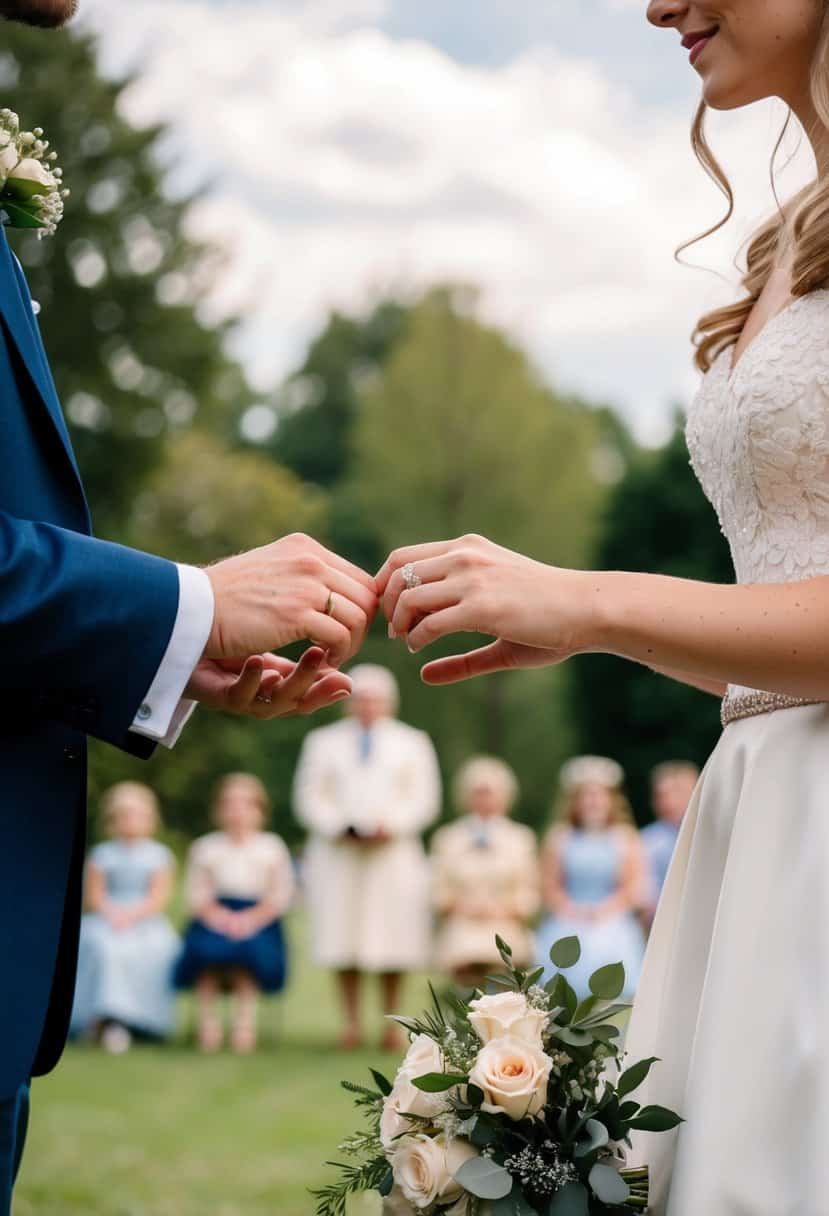
The process requires giving notice at least 29 days before the ceremony. This period is meant to ensure all legal requirements are met, so it’s important to plan your special day in advance.
If you’re a foreign national, there might be additional residency conditions to consider for your marriage in England.
If you’re dreaming of a spontaneous wedding, you might need to hold off a little longer. Instead, take the time to explore your venue options and create a memorable day. Understanding these requirements will save you time and ensure your wedding journey is smooth and exciting. For more details, check the official UK government page for marriages.
The Legal Framework for Marrying in England
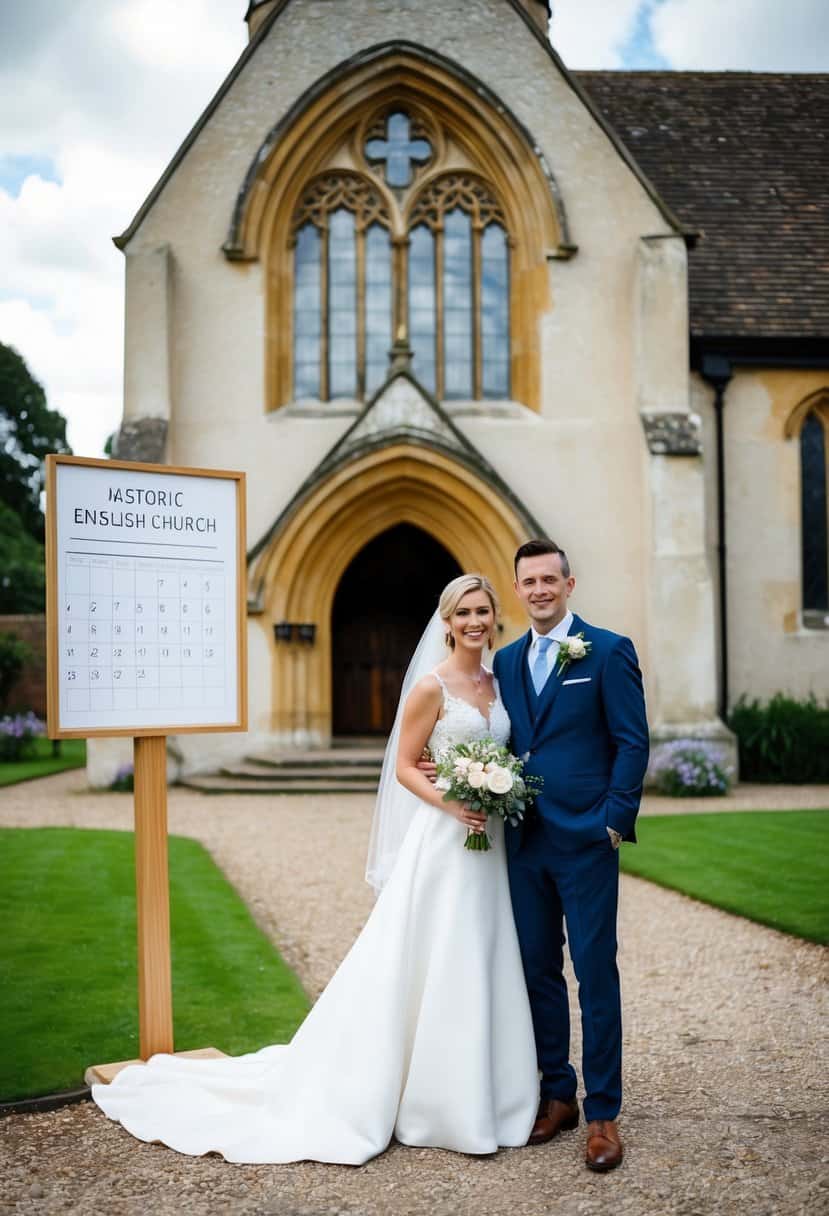
In England, getting married involves understanding specific legal requirements and working with key authorities. You’ll need to consider the law, authorities involved, and essential requirements.
Understanding the Marriage Laws
Marriage laws in England require that couples, whether in religious ceremonies or civil marriages, follow certain processes. You need to give notice of marriage at your local register office. This legal statement must occur at least 29 days before the wedding. Same-sex couples have the option for civil partnerships in England if preferred.
Marriage laws also involve the Protection of Freedoms Act 2012, ensuring protection and fairness across various marriage situations. It’s important that you are aware of the legal requirements so your marriage is recognized.
Key Authorities: Registrar General and Register Offices
The Registrar General oversees marriages in England and Wales and ensures compliance with marriage laws. Your local register office is where you begin the marriage process by giving notice. They handle both religious and civil ceremonies.
You might choose a religious building registered for marriages or a civil ceremony venue. These authorities ensure that your ceremony is conducted legally and to the standards set by law. Working with them is essential for a smooth marriage process.
Legal Requirements for Marriage
To get married in England, you must meet specific legal requirements. Both parties must be over 18. Anyone younger needs parental consent, which was the case before February 2023. You cannot already be married or in a civil partnership, and the marriage notice must be publicly displayed.
You’ll need legally required documents, like proof of identity and residence. If you’re having a religious wedding, confirm the venue is licensed and recognized for conducting marriages. Make sure you meet these conditions to legally celebrate your wedding in England.
Steps to Get Married in England

To get married in England, there are specific steps you need to follow. These include giving notice at a register office, obtaining a marriage schedule or certificate, and considering any special requirements if you are from outside the UK.
Giving Notice of Marriage
You need to give notice at your local register office. This is a legal requirement for both civil and religious ceremonies. You must provide details like your full name, date of birth, and nationality. Bring valid identification such as a passport or birth certificate.
You give notice at least 29 days before your ceremony. The notice is publicly displayed at the register office. You must both visit the office in person. The rules apply even if you plan to get married at different locations.
Marriage Schedule and Certificate
After giving notice, you must obtain a marriage schedule or certificate. This document allows the ceremony to take place. If you plan a civil ceremony, ensure everything is ready at the register office. For religious ceremonies, you may need a marriage schedule.
The schedule confirms details like time and place. You need it on your wedding day. It includes signatures from you, your partner, and witnesses. Once signed, the registrar enters the marriage in the marriage register, and you’ll receive your marriage certificate.
Special Considerations for Foreign Nationals
If you or your partner are foreign nationals, you might need a marriage visitor visa. It’s essential to apply for a visa if neither of you is a UK citizen or has settlement rights. Start this process early to avoid any delays.
You must show evidence of your plans to marry. Documents like flight bookings or emails with the venue can help. When giving notice, bring any visa approval letters. Plan to be in England long enough before the ceremony to handle these formalities.
Types of Marriage Ceremonies in England
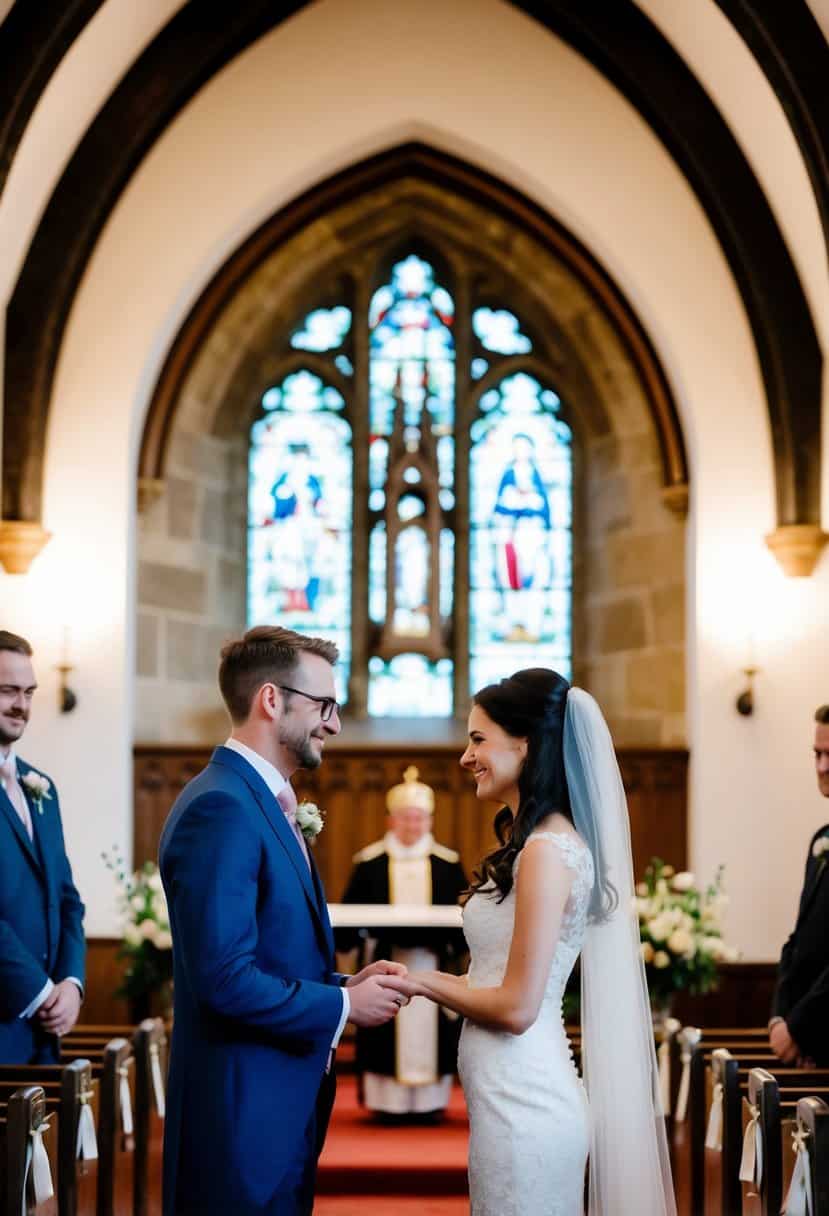
In England, you have several options for getting married, each with its own requirements and traditions. Whether you choose a civil or religious ceremony, understanding these options can help you plan your special day according to your values and preferences.
Civil Ceremonies vs. Religious Ceremonies
A civil ceremony is a non-religious event. It takes place at a register office or approved venue. A registrar oversees the event, ensuring the legality of the marriage. You will need at least two witnesses present. Civil ceremonies offer more flexibility with location and personalization, though they cannot include religious content.
In contrast, a religious ceremony occurs in a place of worship. You may incorporate prayers, hymns, and readings from holy texts. While religious ceremonies have more traditional elements, they also need a registrar or clergy’s presence to be legally recognized. Choose based on whether you want a purely secular event or one with religious significance.
Church of England and Church in Wales Marriages
Marrying within the Church of England or the Church in Wales includes religious traditions and community aspects. Unlike other ceremonies, reading banns of marriage is necessary unless you have a marriage license. This ancient custom announces the intended marriage during church services for three consecutive Sundays.
These marriages usually occur in your local parish church. If you wish to marry elsewhere, you may need permission from the clergy. The ceremony will follow a set liturgy, including exchanging vows and possibly taking communion. Your marriage is both a legal and religious commitment.
Same-Sex Couple Ceremonies and Civil Partnerships
Same-sex couples in England can marry in either a civil or religious ceremony. Since 2014, same-sex marriages have been legally recognized. You may choose a religious ceremony only if the religious organization allows it. This offers an inclusive option for couples seeking spiritual recognition.
Civil partnerships provide a legal commitment without a traditional wedding. Some couples prefer this for its simplicity and clear legal rights. You can also convert a civil partnership into a marriage if that becomes a preference. Both options ensure legal recognition, allowing couples to choose what best fits their values and needs.
Eligibility and Constraints
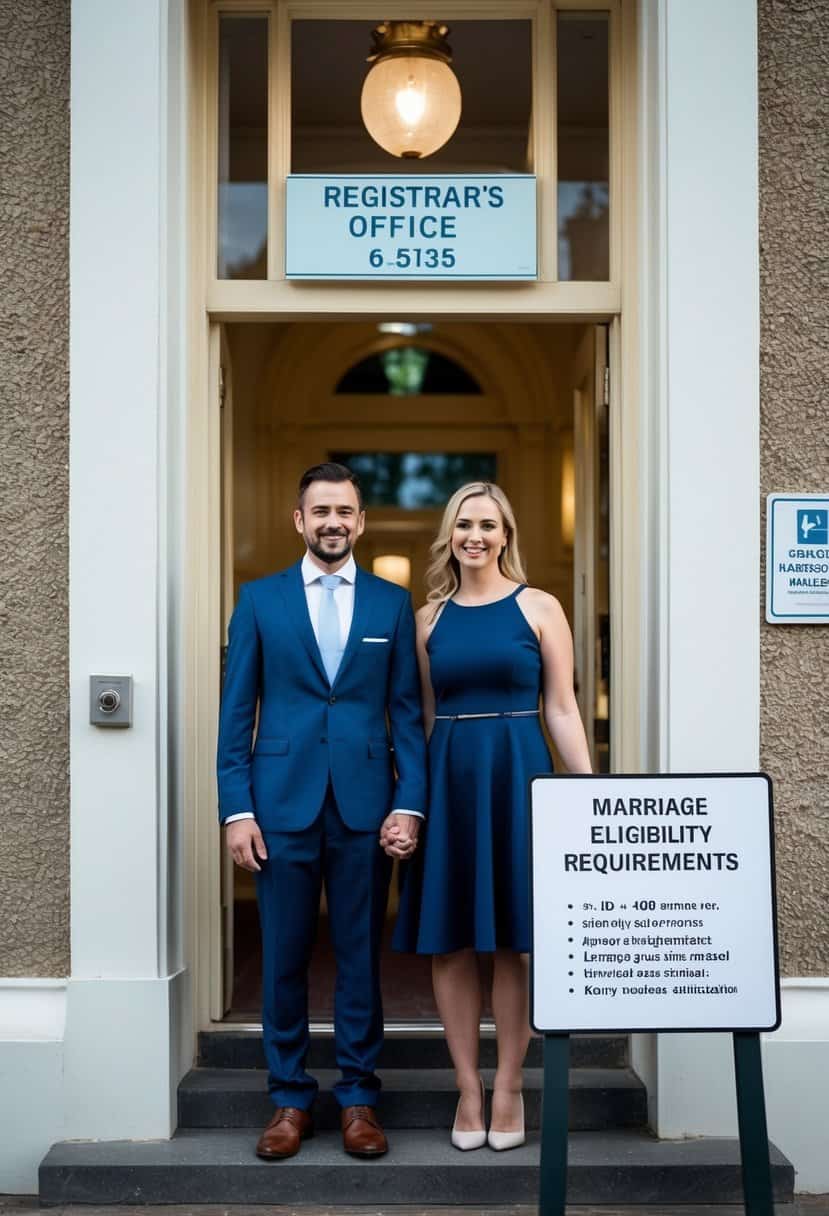
If you’re considering marrying in England, it’s important to know the rules. You must meet specific requirements and be aware of any legal barriers that could prevent your marriage.
Who Can Get Married in England
In England, both same-sex and opposite-sex couples can get married. You and your partner must be at least 16 years old. If you’re under 18, you need parental consent. You don’t have to be a UK resident to get married here, but you must give notice at a local registry office.
Certain documents are also needed. These usually include passports or birth certificates. Additionally, proof of residence may be necessary if you live in the UK.
Legal Impediments to Marriage
Legal barriers can stop you from getting married. Bigamy is illegal, and you can’t marry certain relatives. If you’re already married or in a civil partnership, you must legally end it before marrying someone else.
Clandestine marriages, or those conducted in secret, lack legal recognition. Be sure your marriage follows formal procedures to be valid. Also, certain mental health conditions might require additional checks before marriage.
Previous Marriages and Divorce Considerations
If you or your partner have been married before, you need a decree absolute or a civil partnership dissolution. This proves that your previous marriage has legally ended. Without this document, you can’t remarry.
There’s no waiting period in England after a divorce, but you must have all your paperwork in order. Missing documents can delay your wedding plans, so check everything carefully ahead of time. Divorce can be a complex process, and it’s essential to have final proof before moving on to new commitments.
Practical Considerations and Planning Your Wedding
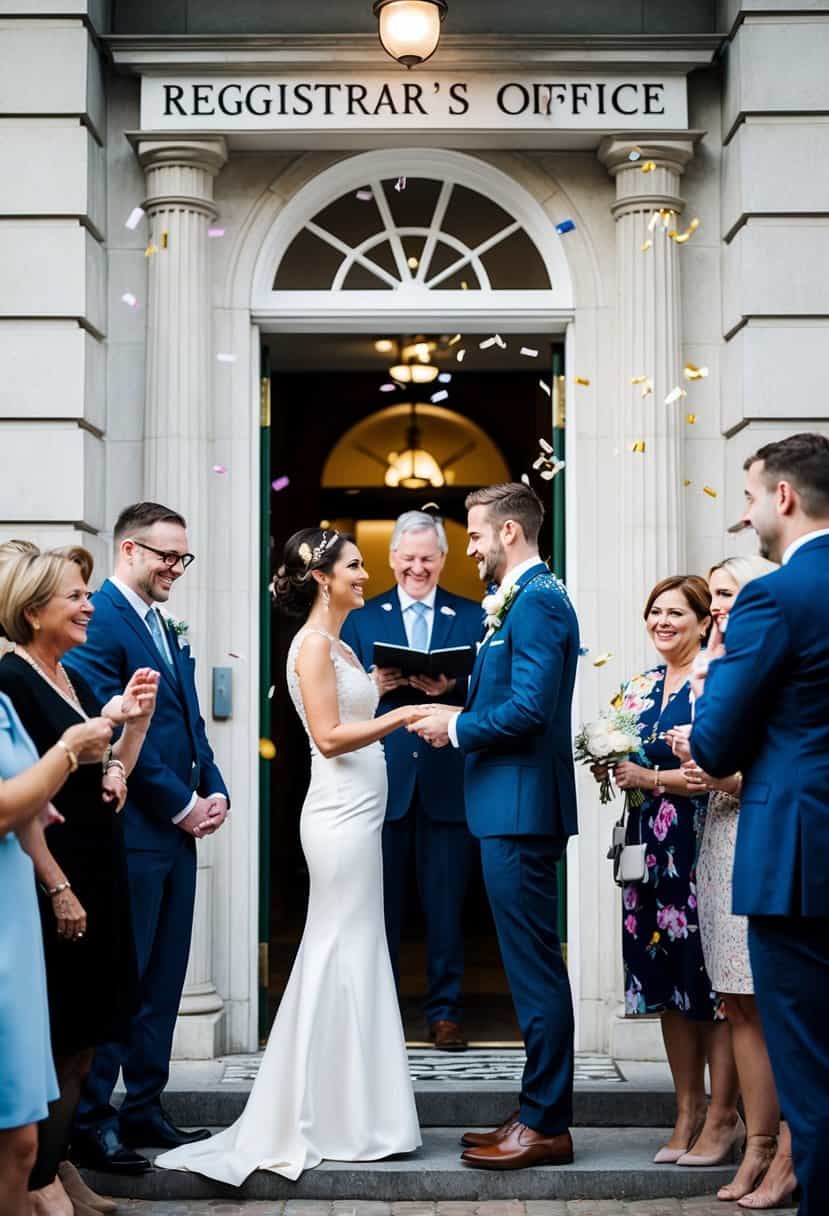
Getting married is a big decision, and planning a wedding can be exciting and overwhelming. If you’re considering a same-day wedding in England, think about key details like choosing your venue and organizing your ceremony efficiently.
Selecting Your Venue and Witnesses
Choosing the right venue for your wedding is crucial. In England, you can get married in a registered office or a licensed venue for civil ceremonies. It’s important to verify that your chosen location is legally authorized to hold wedding ceremonies. This makes your marriage legally valid and avoids any surprises on your big day.
You also need two witnesses to make your marriage legally binding. They don’t have to be friends or family, but they should be over 18 and capable of understanding the ceremony. It’s a good idea to ask them well in advance and ensure they’re available on your wedding day.
Organizing a Same-Day Marriage
If you want a same-day marriage, you’ll need to plan carefully.
First, check if your local registry office allows same-day ceremonies, as policies can vary. You do need to provide advance notice, usually at least 28 days, depending on your circumstances.
Remember, everything should be ready in advance, including any documents required for the marriage.
Consider seeking help from wedding planners who specialize in quick arrangements.
They can help with organizing all the essential elements like flowers, photography, and even catering if needed. Having professionals take care of these details means you can focus on enjoying your day.




